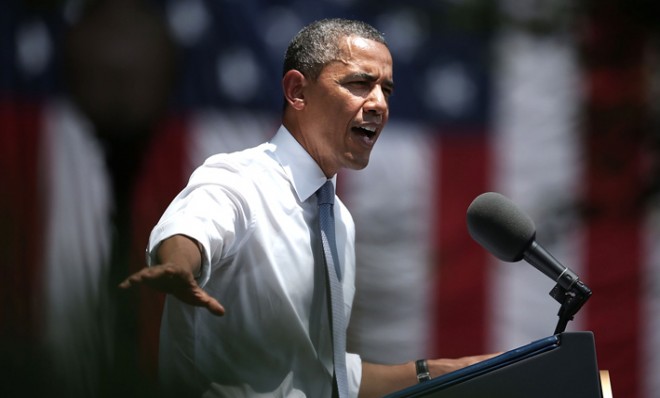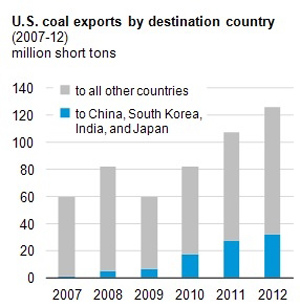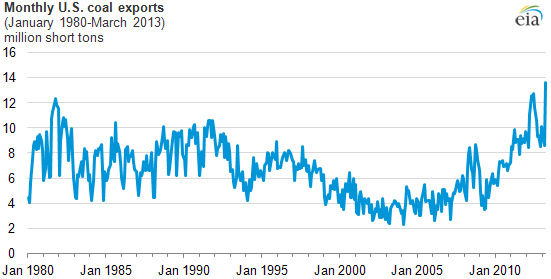Coal exports have doubled during Obama's so-called 'war on coal'
Coal production isn't as high now as it was under the previous administration, but that's just part of the story

A free daily email with the biggest news stories of the day – and the best features from TheWeek.com
You are now subscribed
Your newsletter sign-up was successful
In a speech on Tuesday, President Obama laid out a plan for reducing carbon emissions, directing the EPA to add new carbon limitations for coal plants that are already active — a move that opponents are likening to a "war on coal."
Coal, the largest source of carbon emissions in the U.S., accounts for about 40 percent of the nation's energy and about 86,000 jobs. "The impact [of targeting coal] could be economic havoc," Luke Popovich of the National Mining Association, which represents the coal industry, told CNNMoney.
But accusing Obama of trying to choke out the industry doesn't tell the whole story. As you can see in this graph from Real Clear Energy, Obama hasn't exactly been an anti-coal president, at least in terms of exports. The U.S. was exporting 60 million short tons of coal when he took office in 2009. By 2012, exports had doubled to 120 million short tons.
The Week
Escape your echo chamber. Get the facts behind the news, plus analysis from multiple perspectives.

Sign up for The Week's Free Newsletters
From our morning news briefing to a weekly Good News Newsletter, get the best of The Week delivered directly to your inbox.
From our morning news briefing to a weekly Good News Newsletter, get the best of The Week delivered directly to your inbox.

Though coal production was slightly higher during George W. Bush's presidency, exports were lower.

That said, all of the credit for the U.S.'s recent coal boom doesn't go to the Obama administration — some goes to Fukushima. Following Japan's 2011 earthquake, the country shut down its 50 nuclear plants and started importing more coal to help make up for the loss. So did Germany, which opposes fracking for natural gas.
And no, Obama isn't quite cuddling up to the coal industry: Coal production is down to pre-1996 levels, and according to the Sierra Club, about 130 plants — a sixth of the country's total usage — have been retired since 2010. But aside from earlier restrictions on new coal plants, and the new limits on existing ones, he hasn't exactly waged a full-blown war against coal either.
"Contrasted with the country's great successes over the last couple of years in moving away from coal use, we're now seeing risk of those emissions moving offshore," Kelly Mitchell, a campaigner with Greenpeace, an environment watchdog, told International Press Service in January. "There is a little hypocrisy in this situation," Mitchell said. "Exports... are functioning as a fire exit," he added. "We're not living up to our responsibility to address the climate problem."
A free daily email with the biggest news stories of the day – and the best features from TheWeek.com
At least White House climate adviser Daniel Schrag seems to be aware of the contradictions: "Politically, the White House is hesitant to say they're having a war on coal. On the other hand, a war on coal is exactly what's needed."
Carmel Lobello is the business editor at TheWeek.com. Previously, she was an editor at DeathandTaxesMag.com.